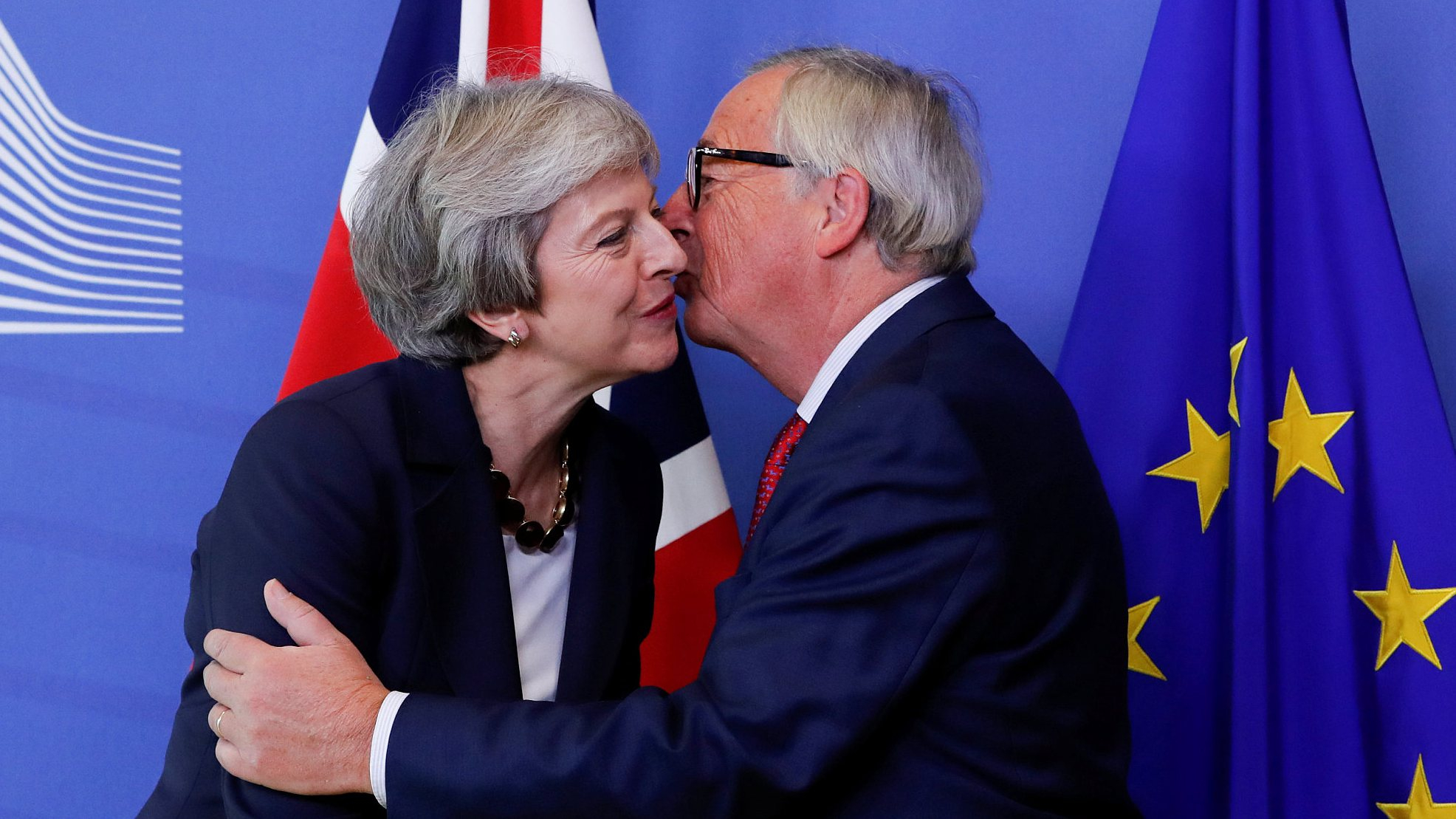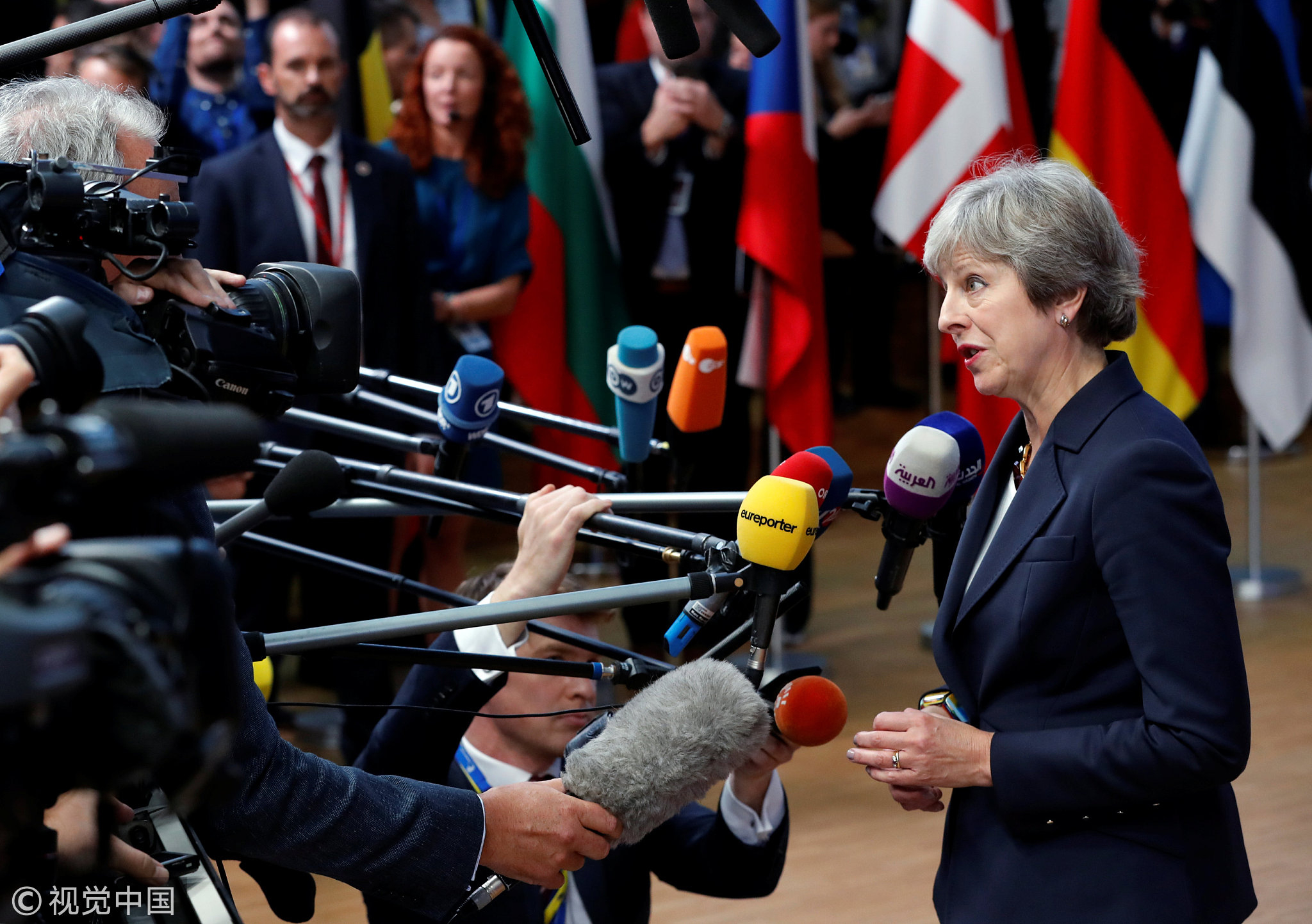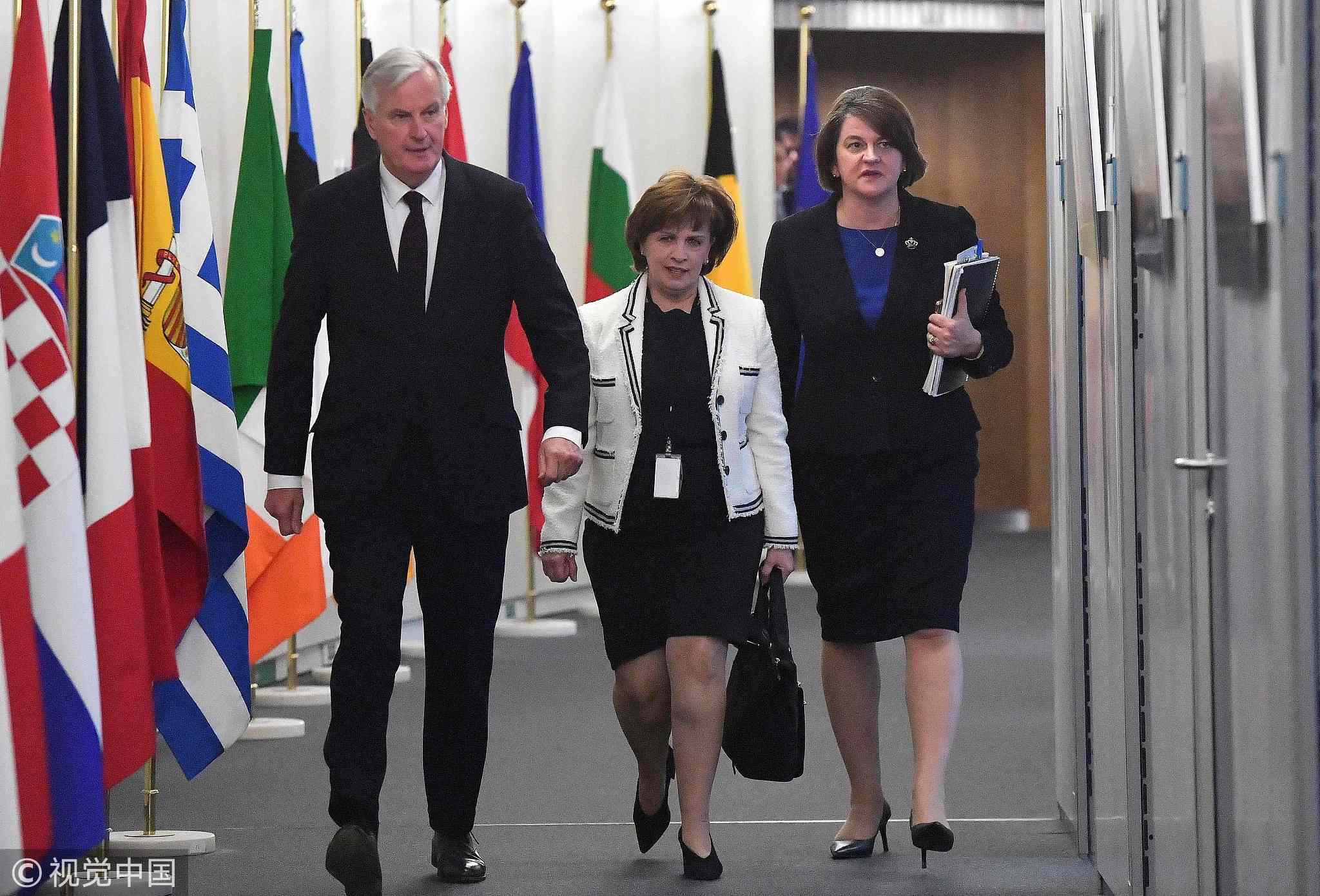
Opinions
22:56, 18-Oct-2018
Opinion: Broken Kingdom: Theresa May – the last prime minister of the 'United' Kingdom?
Updated
22:56, 21-Oct-2018
Peter Doran

Editor's note: Dr. Peter Doran is a lecturer at the School of Law, Queen's University Belfast, The Senator George J Mitchell Institute for Global Peace, Security and Justice and Center for Evidence and Social Innovation. The article reflects the author's views, and not necessarily those of CGTN.
After crashing through an October "deadline" Wednesday for reaching a deal with her fellow European Union leaders on the terms of the UK's Withdrawal Agreement from the Union ("Brexit"), it was apparent that British Prime Minister Theresa May, had succeeded only in uniting the other 27 European Union leaders in a grim determination to throw her a lifeline, in the form of a one-year extension to the UK's period of transition to negotiate its new "third country" status outside the EU.
The 27 EU leaders sought to shore up the British prime minister as she negotiates on multiple fronts, especially her own fractious Conservative Party. There is a deep concern across European capitals that May lacks a mandate and will not be able to deliver an orderly transition out of the EU, with risks of collateral damage on the island of Ireland.
Brexit resulted from a historic miscalculation by former Prime Minister David Cameron, who conceded the 2016 referendum in an attempt to address a fault line in his party that has bedeviled Tory party leaders for a generation. One of those former leaders, John Major, has now warned that the decision to exit the EU could result in the break-up of the United Kingdom.

Britain's Prime Minister Theresa May arrives at an European Union leaders summit in Brussels, Belgium, October 17, 2018. /VCG Photo
Britain's Prime Minister Theresa May arrives at an European Union leaders summit in Brussels, Belgium, October 17, 2018. /VCG Photo
After losing its majority in the House of Commons in 2017, May's government survived by cutting a one-billion-pound "supply and confidence" deal with 10 MPs from the fundamentalist Democratic Unionist Party (DUP) in Northern Ireland.
Most people in Northern Ireland, including liberal unionists, voted to remain in the European Union (56 percent to 44 percent). The DUP MPs, however, have aligned themselves with hard-line "Brexiteers" within the Conservative Party, even acting as a conduit for a 435,000 pound "dark money" donation to the Leave campaign during the referendum.
The DUP MPs and Brexiteer faction share a deep antipathy for the EU and the de facto constitutional settlement (Belfast Good Friday Agreement) that brought peace to the island of Ireland after a 40-year conflict.
One of the most tangible results of the agreement has been an invisible border, made possible by the Republic of Ireland and United Kingdom's shared membership of the EU's Customs Union and Single Market. Senior EU negotiators share a sense of authorship of Ireland's peace.
The DUP's marriage of convenience with the Tory Brexiteers has frustrated attempts by the 26 EU leaders to support Dublin by agreeing on an insurance policy ("backstop") ensuring no return to a "hard border" on the island of Ireland whatever the outcome of UK-EU negotiations.
Elements of the Conservative Party have forced May to unwind a written agreement with the EU on the "backstop," and poured cold water on a unique offer from the EU to accommodate Northern Ireland by facilitating continued access to the EU's Customs Union and Single Market and the UK internal market, beyond Brexit.
Instead, May and her party have sought to exploit the EU's solidarity with the Irish peace process by seeking to co-opt and extend the principles of the backstop arrangement, an offer to Northern Ireland to the whole of the United Kingdom, in an attempt to leverage what would be uniquely generous terms of trade for a "third country" with the EU.

Britain's Prime Minister Theresa May arrives at a European Union leaders summit in Brussels, Belgium, October 17, 2018. /VCG Photo
Britain's Prime Minister Theresa May arrives at a European Union leaders summit in Brussels, Belgium, October 17, 2018. /VCG Photo
All of this has led to Theresa May's decision to frame Brexit in terms of a series of incompatible red lines.
When she announced that Brexit means leaving the EU Single Market and the Customs Union, but that the land border in Ireland must remain invisible and unchanged, she made the current impasse inevitable, resulting in what is looking like the most serious existential crisis for the UK since the end of the Second World War.
By virtue of the Belfast Good Friday Agreement – a binding international instrument registered at the UN – Northern Ireland's place in the UK is contingent on the principle of majority "consent."
The Unionist demographic and electoral hegemony within Northern Ireland is approaching a tipping point. Brexit has accelerated debate on a border poll that will offer a majority in Northern Ireland an opportunity to re-join the Republic of Ireland and rejoin the European Union as full members.
None of this has been lost on the Scottish Nationalist Party leader, Nicola Sturgeon. Scotland voted overwhelmingly to remain in the European Union (62 percent to 38 percent). Sturgeon will use the chaos of Brexit to build a majority vote in a new independence referendum.
Thanks to a deep fault-line within her own party – reflective of a rise in English nationalism, and a lingering antipathy for the EU that merges with transnational ideological interests in support of a radical free trade agenda – Theresa May could yet go down in history as the last prime minister of a "United" Kingdom.
(If you want to contribute, please contact us at opinions@cgtn.com.)

SITEMAP
Copyright © 2018 CGTN. Beijing ICP prepared NO.16065310-3
Copyright © 2018 CGTN. Beijing ICP prepared NO.16065310-3